Ben Adams: HBO has announced a new series from the Game of Thrones producers, based on an alternate reality in which the Confederacy won the civil war and exists into the modern era. My Twitter timeline seems to be unanimous in thinking this is a Bad Idea. Despite having been a fairly big fan of alternate histories in my day, I’m mostly inclined to agree.
That said, here’s the question I want to pose: combine “Confederate” with “The Man in the High Castle” (and most other alternate history literature/movies I can think of), and I’m struck by the fact that almost all alternate histories ask the question “What if everything were worse?”
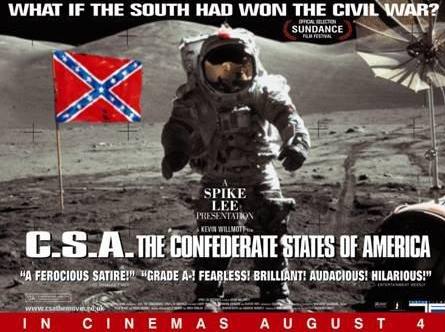
But isn’t it equally valid to ask “What if everything were better?” Aren’t there changes in history we could imagine making that would have made the world a better place? Why do our imaginations gravitate to the negative?
Follow up question: what “better world” alternate reality show should HBO make instead?
Mark Lee: Well, an America where slavery never took hold at all is the obvious starting place.
The first problem that comes to mind is the lower potential for conflict in this sort of story.
Jordan Stokes: Yeah, conflict is the trouble, right? This is probably why we tend to look for bad outcomes in our alternate histories. Same reason the news is always a cascade of atrocities. (Not to reopen that particular discussion.)
I feel like the America minus slavery story would be a hard needle to thread – what story are you telling? Is it set in, like, Atlanta? And if so… are there a lot of black people around?
Writing slavery out of American history means writing modern black culture out of American history. Which is not… comfortable.
Maybe the story you have to tell then, is what the black experience in America would have been, absent slavery? Sort of model it on other immigrant experiences?
Like, what is the small midwestern town that relates to Ghana in the way that Garrison Keillor’s Lake Woebegon relates to to Sweden? But this seems like it would be easy to fuck up. In all kinds of excitingly godawful ways.
Matt Wrather: If other immigrant experiences are anything to go by, not having slavery — as unambiguously good as that would be — wouldn’t guarantee a smooth or even a particularly positive experience. Even the placid, repressed, and well-established Swedes of Lake Wobegon must have had ancestors who were denied jobs, run out of other towns, called “Sven” contemptuously, and so on.
The weakness in the “what if the bad guys had won” model of alternative history speculative fiction is that it seems designed to flatter the prejudices of its audience. It doesn’t really offer a window into the human experience, if that’s the kind of thing you go for in art; it offers a an opportunity to feel righteous. I mean, it’s all well and good to hate Nazis in Indiana Jones movies, but it’s another, presumably more satisfying, thing to hate Nazis in a show where the first superimposed title says “2017.”
“Well, what’s wrong with that?” you might justifiably ask. “Nazis are bad, right? Right, Matt?” And, yes, of course you’re right. When, last November, we ourselves were thrust into an alternate timeline, one of the consequences, I suppose, was that nothing goes without saying anymore, so just for the sake of completeness, I’ll point out that Nazis are bad.
But we don’t need a novel or a TV show or whatever to tell us that.
The problem, I think, is partly dramaturgical — beyond plot-level tension and suspense, there don’t occur to me a lot of interesting ways to tell stories with such unequivocally bad guys — but it’s partly a failure of moral imagination. Part of what makes Mark/Jordan’s proposal for a never-had-slaves alternative history so exciting is that you would have to imagine a completely different set of goods to build the world around.
“Bad guys win” alternative history doesn’t do this, and it’s less interesting for it. Evil triumphant is still evil, and you the reader get to be flattered because you know who the good guys and the bad guys are. (It’s easy: The bad guys are Nazis. Nazis are bad, just in case you’ve forgotten.)
Honestly Nazis are a terrible example, because it Godwins the argument I’m trying to make, which I guess is just that we should be uncomfortable when any work of art says to us, “You know who’s right about a lot of things? You!”
Lee: How about this idea from friend of the show Tim Swann?
I'd love to see what if Napoleon had won, with the moral and political complexity of a reforming autocrat sprung from a revolution https://t.co/3dnMd3nWAu
— tetrarchangel (@tetrarchangel) July 20, 2017
Peter Fenzel: I like it! “The Man on the High Horse” has a nice ring to it!
I’d compare negative alternative history to disaster movies, like Twister or Armageddon. Like Westerns, they’re about exposing how much of ourselves – and what we think is admirable about ourselves – is a product of comfortable or reinforcing circumstances.
What might we be like if we didn’t have that comfort or reinforcement? That’s sort of like asking, “What are we really like?” Then, maybe we also confront by association that we are not comfortable and not reinforced at times and this is what we are like in those times.
So, Twister is about a tornado, but it’s mostly about testing a strained marriage. I was going to ask what Twister would be like if the storm went back in time and strained the relationship before they were married, but then I realized that was Back to the Future. It’s about exploring what we’re really like, and what our parents were really like. It’s the difference between Red Dawn and Red Son—present disaster versus retroactive disaster.
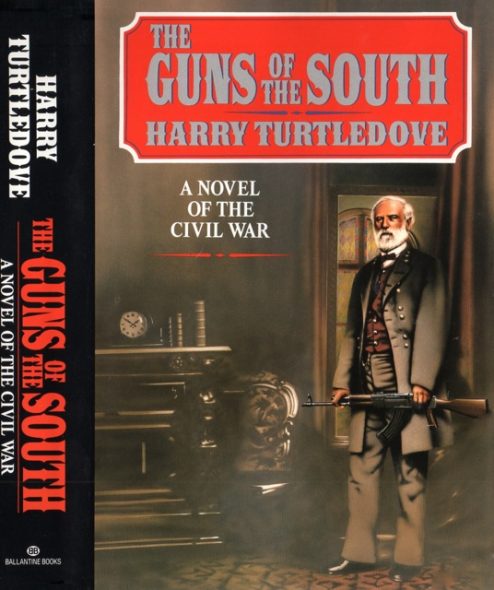
Like the phrase “Guns of the South”—in my mind the most famous negative alternative history prior to the current spate—resonates with the modern South.
The big problem I think with doing “Confederacy Wins” or even “Slavery Never Happened” alternative history as a mainstream popular entertainment is that Black people don’t have the same sense of being comforted and supported by the history of slavery and emancipation such that removing it would be a interesting exploration, for them, of who they are now. That’s my guess anyway. I think white people who grew up in a post-Roots world especially don’t understand that slavery was more of an erasure than a history, in the form of wound it is. Separating people from their families, their names, their heritage, it’s very different from the immigrant experience of other peoples, let alone natives—and even then you don’t see the “Get out of here, Sven!” show Matt talked about turning heads. That’s not the kind of exploration of the past people want, unless it’s tied to a grander affirmation.
And that’s not even touching on the people for whom seeing the South winning would not be a disaster at all – that’s where it gets real unpleasant. So it’s a show idea that on the surface views its audience narrowly and myopically about what they find comforting.
To make a positive one, maybe you should look for negative things people find affirming and supportive. Like do an alternate history version of The Departed except the Red Sox won the World Series 35 times.
Stokes: This is sort of what I meant when I said that the “slavery never happened” show would be easy to fuck up. Slavery is a still-bleeding wound. To go in and erase that erasure, even speculatively, means poking at the wound. There are probably better and worse ways to do it, but people almost certainly get hurt.
If you squint at it really hard, the “Americans were too moral to ever countenance slavery” story is not thaaaat different from a Gone With The Wind-style “the slaves were actually happy” story. It erases the same trauma, just in a different way.
If you held a gun to my head and told me to write this, I would maybe do a short story set in the present day, where some black character has to put up with a series of microaggressions that increasingly get less micro. Maybe it climaxes with him trying to go vote in an election, only to find that his name’s been purged from the voter rolls or whatever.
And all throughout this his attitude is one of disbelief. He can’t understand why people are treating him like this. And it’s interspersed with him remembering stories about his ancestors — his great-great-whatever grandmother arriving at Ellis Island and whatnot — and how his family has been tied into this new version of American history. (In the flashbacks, the characters only encounter what you might call an ordinary level of anti-immigrant sentiment, which is why he doesn’t understand what’s happening now.)
The point, basically, is to put the real-world black experience through some ostranenie, i.e. taking something that is familiar and pointing out how deeply weird it is.
Done right, it would be a crushingly bitter (and non-comedic) satire. The concept seems like it would respond a lot better to a Twilight Zone treatment than to a Game of Thrones treatment… nothing about this calls for a bucket of tits and blood-soaked melodrama. But even so, it would be very hard to do it in a way that wasn’t pointlessly hurtful.
Next time: what does God think about all of this? And what if, we started thinking smaller about alternate history?
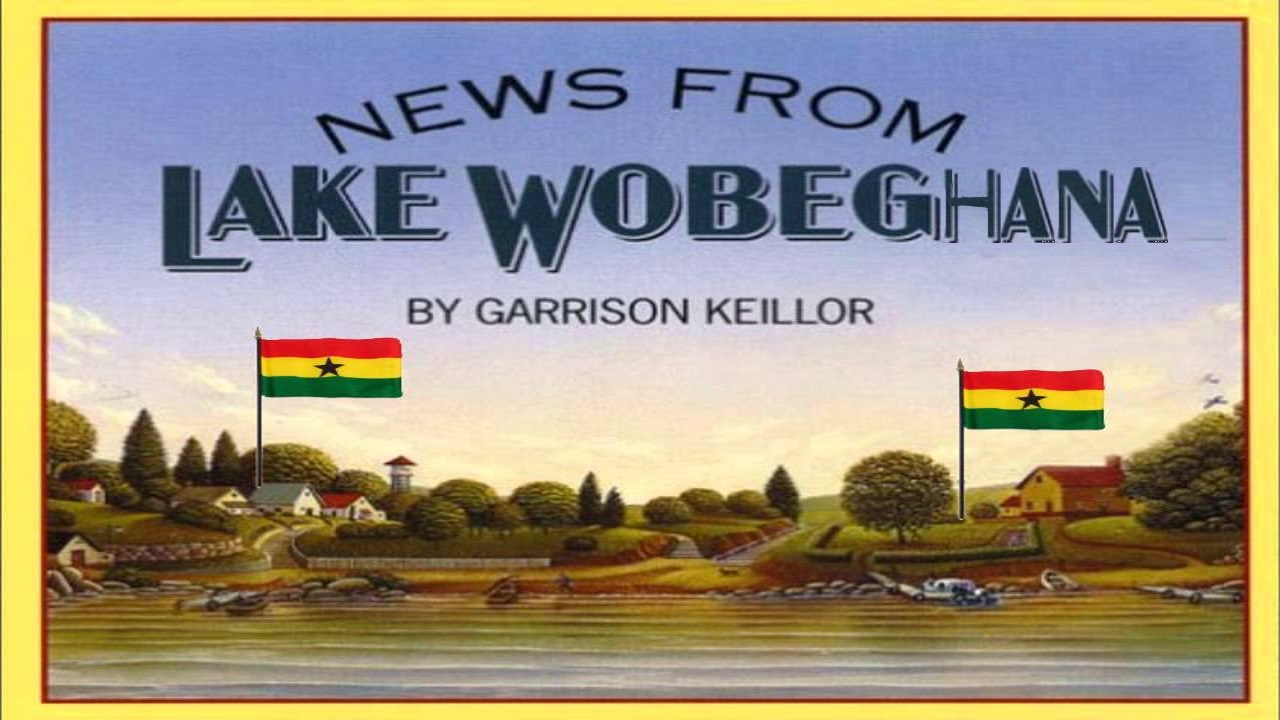
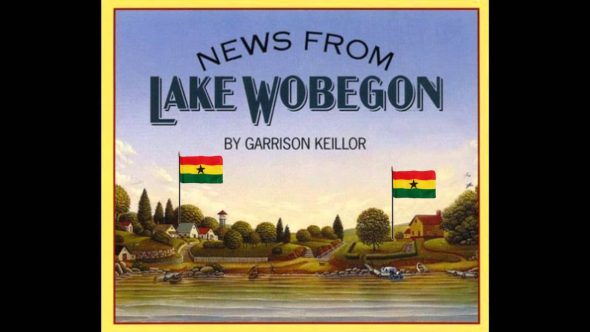
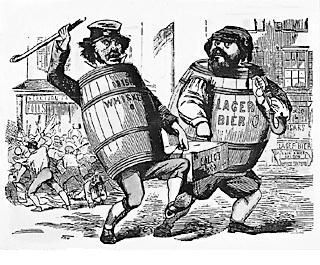
Interestingly, Amazon announced they’re making a positive-minded alternate history show which posits that during Reconstruction a free black state seceded from America and still exists in present day. Sounds like a neat way to have conflict (arising from culture clashes, diplomatic efforts, etc) without just falling into “what if the bad guys won?”
I like this premise too. If done properly, it could provide a nuanced examination of what happens when freed slaves get to build their own society, and when concrete efforts at reparation are made.
Do Native Americans get their own country too?
Freedom is a skill set that is learned over time, as the Mother of Dragons has learned. See also: The Book of Exodus, where the Jews had to wander the dessert for forty years as they weren’t ready to settle down in the Promised Land just ye.) Picking it up in the modern era makes the premise even more compelling. It would also be interesting to see how non-black citizens are treated.
Great post!
I think a lot of alternate histories are negative as they’re indented as a sort of cold comfort: Our world may have problems, but at least the Nazis didn’t win WWII, so there’s that.
It is way too soon for this, but since last November I would like to visit a alternate history where someone else won the 2016 US Election. (I’m Canadian). I would manage my expectations, I would not expect a glittering Utopia, but I would be curious to see how things are progressing in that timeline.
Actually, I often feel like I’m trapped in an alternate history now.
Going a little further back, I would like to see what the world would be like if 9/11 was averted. I predict a decade of war would be avoided and airline travel would still be tolerable.
I know, its’ too soon, those wounds are too fresh.
For a positive alternate history, I recommend All Our Wrong’s Today’s by Elan Mastai
http://mashable.com/2017/02/15/all-our-wrong-todays/#hBM6eNAcOmq0
This alternate history deals not with politics or war but with technology. What would happen if a form of cheap, clean, endless, energy was not only discovered but distributed on a wide scale? The first part of the novel is unapologetically Utopian, although even Utopias aren’t perfect.
That’s All Our Wrong Todays! Commas can change history…
They say history is written by the victors and, to a great degree, so is alternate history. As a result, much of it is depressing as a result of a “well, what if we had lost instead” thought process.
Another commenter posited a world where 9/11 was averted, preventing a decade of war. Personally, I’ve pondered the opposite- a third and final terrorist attack on the WTC (don’t forget, 9/11 was the second) which was even more cataclysmic. Preventing 9/11 would have stopped a terrorist act, but it would not have stopped terrorism.
I can’t recommend 1632 enough. I haven’t delved into the greater fan-made world (which the author encourages!), but the original standalone book is fantastic, and is a heck of a lot more positive. “We’re stuck in the past, so let’s make the best of it, dadgummit.” It may not be 100% alternate history, inasmuch as they’re in the process of -creating- the alternate history, but I’d still count it.
If I recall, those have an interesting POV in that the overriding political theme is a celebration of working-class labor union liberalism, equal parts anti-elitist and socially inclusive.
I wonder what degree American triumphalism plays into it – the sense that American is The Greatest Country On Earth and the outcomes of our history are the Best Possible Outcomes and therefore any change to our past would automatically be a more negative alternate timeline.
Obviously, this is an inaccurate generalization, but I notice there’s a whole slew of alt. histories where, say, the British win the Revolutionary War (democracy never takes hold in the 18th and 19th centuries!) or the Confederacy wins the Civil War or the Nazis win WWII and bad things result. You almost never see an alt. history about, say, the Native Americans driving off all the European colonists and maintaining control of the Americas, or about slavery never having been a US institution, as noted above. I wonder if there’s more of a tendency to tell positive alt. history stories in countries that have cultures that are more inclined to admit to past national sins.
Couldn’t agree more that the world needs a “What if Europeans had not or had been unable to conquer North/South America?” story.
I read the fantastic history book “1491” a while back, and it really drives home the massive scope of what was lost when native americans were wiped out. The big argument/bottom line of the book is that pre-Columbian societies were likely much larger and more robust than has been previously suspected. Disease traveled much faster than European explorers, however, so by the time any Europeans arrived to conquer/kill/write history books about native americans, the societies they saw were just what was left after multiple waves of devastating infection. It would be like aliens visiting Europe in 1946 and wondering why these savages can’t make buildings that don’t collapse.
There are a couple versions of this story that I know of, but neither of them really hit the nail on the head. Kim Stanley Robsinson’s “Year of Rice and Salt” is something sort of close to the “driving off European colonists” story – it posits that the Bubonic plague had a significantly higher fatality rate, so all of Europe is essentially wiped out in the Middle Ages. World history plays out dominated by Islamic nations, India, China, and natives of North/South America. I’m not sure it’s really all the “positive” though – there are still world wars, colonization, slavery, etc., it’s just practiced by different parties. And most of the emphasis is in Africa/Asia/the subcontinent, so we don’t get to see as much of how American history plays out.
Orson Scott Card’s “Pastwatch” is a sci-fi spin on this theme. In Pastwatch, a future post-collapse-utopian society discovers time travel and decides to go back in time and undo the European conquest of America. Eventually, guided by time travlers who sabotage Columbus’ expedition, the empires of South and Central America ally with the natives of North America into a super state and they drive off the Europeans. But because it’s OSC, there’s all sorts of weird subtext (like the implication that without the intervention of Europeans and/or time travelers, the empires of South and Central America would not only beat back the Europeans, but conquer/slaughter them to please their blood gods. So I wouldn’t hold Pastwatch up as a progressive masterpiece.)
Let’s not forget the part where Europeans burned witches at the stake to appease the Christian god. Given a few more hundred more years, the Mayan/Aztec/Inca religions may have evolved into something more moderate.
I think it would be very interesting to pursue a “what if the native North Americans successfully repelled European colonization” alternate histories. Would the (tribal?) states of North America rally to intervene in 20th century European wars? What countries around today would be most analogous to the countries of the Western Hemisphere, if the Western Hemisphere has a negligible number of European settlers? Who would be the leading 20th century nuclear powers, and how would they have behaved?
The more I think about it, the less ready I think we are to have an unflinching look at such a scenario.
I think one of the major struggles with telling a story like this is that in addition to wiping out Native American people, European-descended American colonists also did a pretty thorough job of wiping out Native American culture. Which means that imagining any sort of Native-held America would involve inventing whole swaths of Native American culture, history, inter-tribal rivalries, etc. that we simply don’t know. It’s much easier to write alt-histories about cultures that still exist today and about which we know a lot.
This is a key point. I find it almost impossible to imagine a well-done alternate history story set in the 20th or 21st century, set in a world in which Europeans never successfully invaded America (the continent), precisely because you’d have to invent several plausible centuries. More achievable might be something set in the late 1500’s, after a century of failed invasion attempts. Or maybe a story in which, instead of the Viking arrival on Newfoundland petering out after a couple of years, it sparks a transatlantic exchange of technology, ideas, and disease immunity and prevents the Columbian plague?
I find the story of an Eriksonian exchange caused by a more robust colonization by the Vikings in North America to be a fascinating story idea. Metallurgy, horses, European diseases, written histories, and eventually Christianity would have massive impacts on how the history of those from the east coast to the far side of the Mississippi would play out. Perhaps a very different version of the triangle trade would occur between the new world, Europe, and Africa’s ivory coast kingdoms.
Just one more:
The Yiddish Policemen’s Union by Michael Chabon is a wonderful alternate history. Here, the new state of Israel collapses in 1948 so the Jews seeking their own nation are allowed to set up shop on the Alaskan Panhandle. Naturally, the Inuit and others inhabiting that area are not pleased. But unlike Israel that state is about to revert to American Control. It is a fascinating look at what would happen if post war history went in a different direction, and the novel provides a scenario that is neither unrealistically Utopian or depressingly bleak
Gonna second that recommendation for Yiddish Policemen’s Union. If anyone wants to check it out, use this affiliate link to get it on Amazon and support Overthinking It: https://www.amazon.com/Yiddish-Policemens-Union-Novel-P-S/dp/0007149832?tag=overtit-20
Why does everyone forget that the USSR first created a jewish province within Russia that exists to this day?
What if all the European jews immigrated there instead? What would zionism even look like?
Early seasons of “Sliders” had a lot of alternative history, including Britain controlling America. A world where the U.S. is a communist state. U.S. was a theocracy in one alternate Earth. Another where penicillin was never invented. I think there was one in which Texas annexed a large chuck of America.
I am wondering if there has ever been an alternative history in which Hitler was killed in the first World War. The closest I’ve seen in a Justice League cartoon in which Vandal Savages replaces him.
There’s the “Command and Conquer: Red Alert” games where Einstein goes back in time and kills Hitler. WWII ends up being Stalin/USSR v. Everyone Else. It gets progressively nuttier from there (mind control, more time travel, etc.)
And with Red Alert 2 and Sliders, you’ve got the Kari Wuher connection.
This is an interesting concept but I think you are simplifying a bit, stories need conflict and the reason you create an alternate history is to develop a setting with an interesting inherent conflict. However there is no reason why a change that could be said to be unambiguously positive could not have negative as well as positive consequences. Take for example one of my favorite ideas for an alternate history. What if Archduke Ferdinand had not been assassinated and history World War I never takes place.
It is hard to argue that this would not be an unambiguously positive thing.
*18 million people are saved from horrifying deaths, millions more avoid crippling physical and psychological wounds and the faith of generation in the ideals of progress is not crushed by the brutal reality of war.
*Without World War I many of the causes of World War II simply don’t exist. Hitler most likely dies as an uninspired artist. 80 million people are saved including 6 million Jews and millions of others killed in the Holocaust. Europe’s infrastructure is not ground into dust.
*If the Great War had not squandered $208 billion on killing as many people as possible; the world’s economy would have been in a far better place and it is possible that the Great Depression could have been avoided or at least not been as severe.
*The February Revolutions probably never happen in Russia, Lenin and thus Stalin never come to power and his purges never happen saving some 950,000 people. Without the example of Russia it is far less likely that the Communist revolution succeeds in China and without the economic mismanagement of the great leap forward 45 million people survive. There is no Cold War as we know it.
Is it not a glories future? Was this not an unambiguously positive change?
And yet if you follow this event through to its logical consequences it becomes far less clear. Could it not be seen as a terrible place?
*Without the stresses of the Great War and subsequently World War 2 it is unlikely that the European Colonial Empires world have collapsed the way they did. A large portion of the world would likely still be colonel possessions. With all the abuses and proxy wars that involved.
*Monarchies be they constitutional or absolute would hold sway throughout much world, democracy would form a smaller part of most governments.
*The aristocratic ideals of the early 1900’s would never have been broken down on the fields of war and concepts of class would be far more entrenched.
*Without the pressures created by the Great Depression and the Example/Threat exemplified by the communist revolution in Russia the modern social welfare state would be far less developed in both Europe and America.
*It is likely that without the necessity to recruit women and minorities into the work force during the first and second world wars; suffrage, women’s rights and civil rights movements would have been delayed.
*Although this alternate history supposes that nothing took the place of Archduke Ferdinand’s assassination and thus there was never a great war in Europe; necessitating the idea that the world’s great powers got very good at avoiding an all-out conflict; the fact would remain that all of Europe would still be divided into competing alliances that could go to war at any time and would in all likelihood be locked in a continuous Cold War of their own pushing and prodding at one another’s positions through proxy wars and espionage across the globe.
It is a very alien world full ideals we have discarded and far behind in developing some we cherish. Millions of deaths have been avoided but the world sits perpetually smoldering on the edge of all the conflicts it has avoided.
The potential for conflict in such a world is everywhere. The point to remember is that if you go back in time and fix one problem the others don’t magically disappear and may even get worse without the stress that problem imposed. And those problems could be the root of a thousand stories, in perhaps a better but potentially very alien world.
perhaps a better but potentially very alien world
unn.edu.ng
One point that I think is relevant to make about The Man In The High Castle specifically is that the book was written in 1962, a mere 17 years after the end of World War II. This makes the context of the book radically different from that of its Amazon TV adaptation. If you started writing it now, an alternate history in which 9/11 never happened would have the same distance from the present as MitHC did when first published.
As for other alternate histories that aren’t necessarily worse OR better, just different – is anyone else familiar with the OG steampunk book, The Difference Engine by William Gibson and Bruce Serling? The premise is that Charles Babbage actually builds a working modernish computer based on mid-19th century steam technology, leading to an IT revolution in the Victorian era and an even more powerful British Empire as well as all sorts of other differences. The ones for America are indeed mostly negative – the Confederacy does still exist (due to British interference) but excludes a never-annexed, independent Republic of Texas. Also for some reason New York City has had a communist revolution.
Check out anything by Jonathan Edelstein or Thande for some fascinating, and not completely negative, alternate histories.